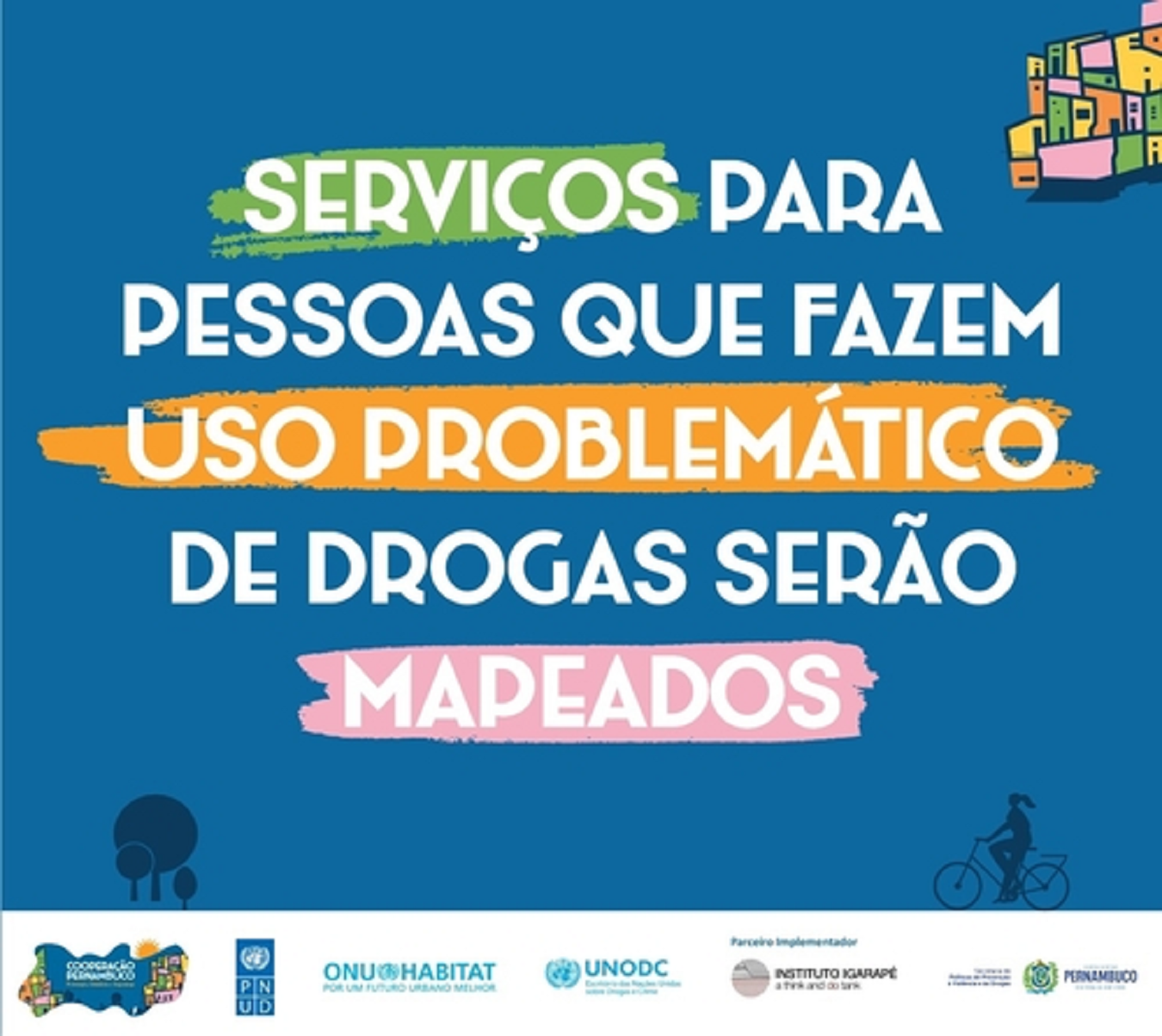
An unprecedented, compreensive, and detailed research is underway for the "Mapping of the Treatment Services Network for People with Problems Associated with the Harmful Use of Alcohol and/or Other Drugs". The survey should be concluded on the 31st, with the participation of teams from the Psychosocial Care Network (RAPS) and Welcoming Therapeutic Communities. There will be approximately 3 thousand teams.
As the deadline for the conclusion of data collection approaches, the organizers ask for the commitment in the participation of those involved. The work plans to make a detailed picture, with particular aspects, of which services are available for people who make harmful use of alcohol and/or other drugs. The result of the research should support managers and professionals of the care network, including the health network and the services of other policies, which dialogue with this issue of mental health, such as drug policies.
The expectation of the nurse of the basic family health unit Vila do Posto I, Noely Resende de Almeida, 28, is that the result of the mapping can serve to present a real picture to the managers of health resources. Noely has worked for 4 years in Buíque and enjoyed participating in the mapping. "The survey is practical, doesn't offer difficulties, and can generate good results.
Nadja Oliveira de Barros, 49, a social worker for 6 years, classified the research instrument as clear and objective. Nadja, who has worked at the Saravida therapeutic community for three years, says that everyone involved should participate. "Answering the survey helps us understand further on chemical dependency," she said.
The nurse Isadhora Stephanie Costa, 27, coordinator and nurse at the Psychosocial Support Center (CAPS), in Águas Belas, had some difficulty in answering the survey, so she praised the clarifications she received. Isadhora gives a tip to her colleagues in other CAPS. "Gathering the team to answer makes the work simple," she advises.
INSTRUMENT - The survey is online and has 160 questions distributed in 4 sections, which approach aspects such as human resources, installed capacity, services offered, and network articulation. Certain answers lead to new questions, which detail the services offered to problematic users of alcohol, crack, and other drugs.
The mapping is unprecedented in Brazil. It was inspired by the tool developed by the United Nations Office on Drugs and Crime (UNODC), in partnership with the World Health Organization (WHO). With the survey, the Government of Pernambuco will have in hands a strategic resource, useful to serve the population that faces the problematic use of crack and other drugs - which did not get smaller during the pandemic times. In the State Government, the research is an initiative of the the Secretariat of State for Drug and Violence Prevention Policies (SPVD), with the support and partnership of the State Health Secretariat and the municipalities, and the Pernambuco State Council for Drug Policy (CEPAD).
The importance and uniqueness of this work were registered in the international webinar International Guidelines, Prevention, and Mapping of Drug Use Treatment Services. The event was attended by local authorities, experts in Porto Alegre, Rio Grande do Sul, and Vienna, Austria. The video with simultaneous translation is available on the State Government YouTube Channel [https://youtu.be/czXudneBRjM].
The research is part of the Pernambuco Cooperation, an agreement signed by the Government of Pernambuco, through the Secretariat of State for Drug and Violence Prevention Policies (SPVD), with UNODC, the United Nations Human Settlements Programme (UN-HABITAT), the United Nations Development Programme (UNDP), and the Igarapé Institute.
ADDITIONAL INFORMATION - The Mapping of the Treatment Services Network for People with Problems Associated with the Harmful Use of Alcohol and/or Other Drugs will go far beyond the georeferencing with names and contacts of public and private facilities. The work will strengthen the entire RAPS and its articulation with the Intersectorial Care Network. By approaching such a broad network throughout the state, good practices will be observed and highlighted, which are the obstacles to the adoption of the best procedures and what is needed to improve services. Another expectation is the knowledge of the Receiving Therapeutic Communities, aiming at the qualification of this type of space, based on international precepts (WHO and UNODC).
This mapping work is related to the logical framework and the indicator matrix for monitoring and evaluating violence prevention policies. The connection between these two UNODC products is seen as innovative by the agency, within Latin America.
With information from SPVD
Learn More: http://www.agenda2030.com.br/